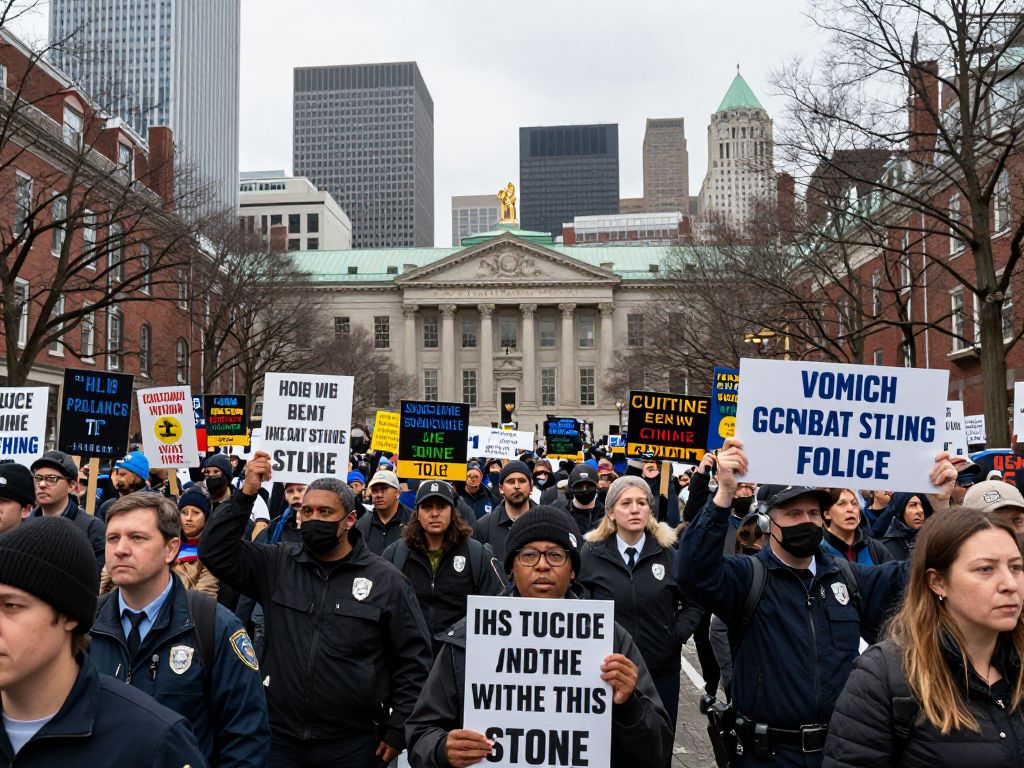News Summary
Boston is experiencing a notable drop in new housing construction, with a 46% decline in projects initiated in 2023 compared to previous years. Rising rents and increased affordable housing requirements have made developments less viable, prompting criticisms of Mayor Michelle Wu’s policies. Compared to other major cities, Boston is lagging in home building while economic challenges continue to affect developers. The situation demands urgent attention as many residents struggle with housing affordability.
Boston is facing a significant decline in new housing construction, with fewer units initiated in 2023 and 2024 than in any year since 2011. City data highlights a sharp drop of 46% in new housing projects in 2023, with only 2,358 units starting, while 2024 sees a slight increase to 2,389 units. This downturn is occurring amid rising rents, which have risen approximately 12% over the last four years, exacerbating the need for affordable housing in a city under increasing pressure to accommodate its growing population.
Despite being a priority during her mayoral campaign, the administration of Mayor Michelle Wu has seen a significant slowdown in housing development. Critics attribute this downturn to Wu’s housing policies, which have enhanced affordable housing requirements from 13% to 17% of new developments since October 2022. Many developers argue that these added requirements have made construction projects less viable, consequently leading to fewer units being produced.
In comparison to other major cities like Seattle and Washington, D.C., Boston is building significantly fewer homes. The construction climate has been challenging, with costs for multifamily buildings increasing more than 40% since 2020 due to rising material costs and inflation, while interest rates on construction loans have also spiked. As a result, many developers are opting to seek opportunities in suburban areas rather than tackling the urban development challenges in Boston.
While there are around 32,147 homes in the approved development pipeline, it’s worth noting that many of these projects had received permits before Wu’s administration took office. The city’s Housing Accelerator Fund, with an allocation of $110 million, aims to advance paused projects focused on affordable housing, indicating a commitment to addressing the current issues in the housing market. As of March 2023, developers in Boston are working on over 2,800 units across 29 properties, with expectations of 846 additional affordable units becoming available in 2025.
Support for affordable housing initiatives remains strong among community members and activists, many of whom view the efforts as necessary to assist low-income residents. However, the effectiveness of Wu’s policies is still a topic of heated discussion, with some housing economists suggesting that the broader economic climate may be more influential on construction levels than local policy changes.
The slowdown in new housing construction in Boston mirrors a national trend, as many cities face similar challenges due to economic conditions and rising property costs. Advocates for affordable housing are urging the city to reconsider its approach to development, pushing for measures that could ease the financial burdens on developers while still ensuring that low- and middle-income residents have access to housing options.
In conclusion, the situation for housing construction in Boston is critical, with rising costs and increased regulations intersecting to limit the supply of new units. As the city navigates this challenging environment, the balance between fostering development and meeting the needs of its current and future residents will be crucial for a sustainable urban growth strategy.
Deeper Dive: News & Info About This Topic
HERE Resources
Dorchester Residential Fire Displaces Ten Residents
Boston Emerges as Top Destination for Former Federal Employees
Boston Buzzes with Family-Friendly Fun This Weekend!
Massachusetts Tackles Housing Shortage with Office Conversions
Boston Mayoral Race Intensifies with Major Super PAC Contributions
Boston Residents Oppose Proposed Downtown Zoning Plan
Boston School Committee Seeks Revisions in Exam School Admissions
Boston Retirement Board Approves 3% COLA for Retirees
Boston’s Economic Future Influenced by National Policy Changes
Massachusetts Home Prices and Sales Surge Amid Shortage
Additional Resources
- Boston Herald: Boston’s Oldest Housing Development Breaks Ground on Massive Redevelopment
- Boston Globe: Boston Housing Construction Policy and Affordable Housing
- Multi-Housing News: 1st Financing Package Aligns for $2B Boston Redevelopment
- National Law Review: Boosting Boston’s Housing
- Housing Finance: WinnCompanies and Boston Housing Authority Launch First Phase of Long-Awaited Project
- Wikipedia: Housing in the United States
- Google Search: Boston housing construction
- Google Scholar: Boston affordable housing
- Encyclopedia Britannica: Housing
- Google News: Boston housing news

Author: STAFF HERE BOSTON WRITER
The BOSTON STAFF WRITER represents the experienced team at HEREBoston.com, your go-to source for actionable local news and information in Boston, Suffolk County, and beyond. Specializing in "news you can use," we cover essential topics like product reviews for personal and business needs, local business directories, politics, real estate trends, neighborhood insights, and state news affecting the area—with deep expertise drawn from years of dedicated reporting and strong community input, including local press releases and business updates. We deliver top reporting on high-value events such as Boston Marathon, Head of the Charles Regatta, and Boston Harborfest. Our coverage extends to key organizations like the Greater Boston Chamber of Commerce and Associated Industries of Massachusetts, plus leading businesses in finance, biotech, and insurance that power the local economy such as Fidelity Investments, Biogen, and Liberty Mutual Insurance. As part of the broader HERE network, we provide comprehensive, credible insights into Massachusetts's dynamic landscape.





